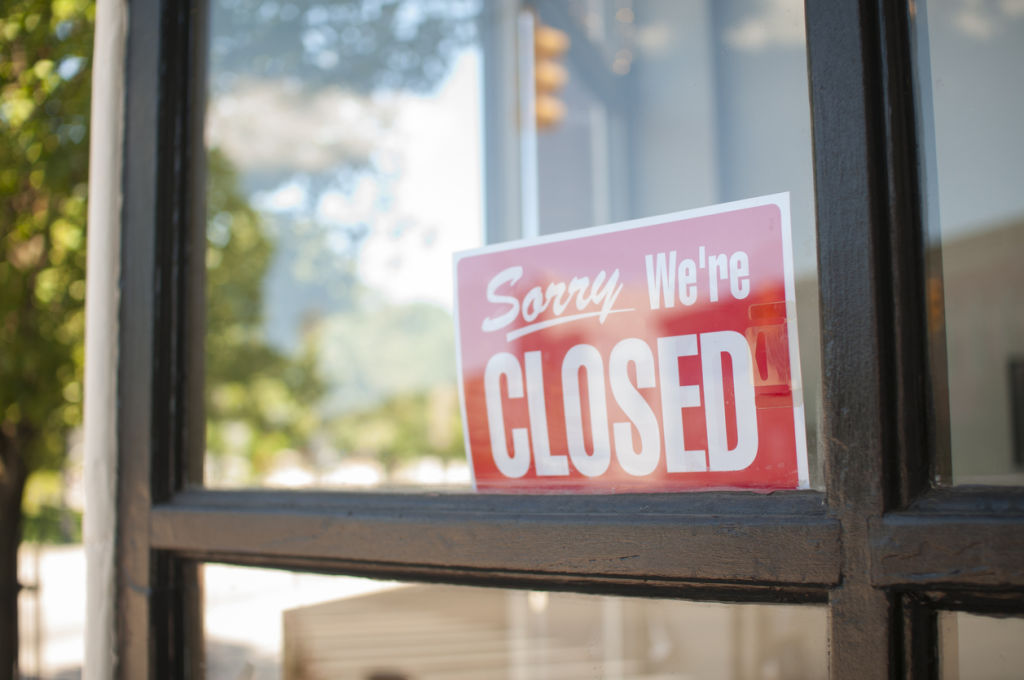
Coronavirus shutdown: What to do when your commercial tenant can't pay the rent
Commercial landlords facing the prospect of their tenant having to shut down as a result of the coronavirus are being urged to take a proactive approach and consider options such as rent deferrals or abatements to keep their property occupied.
The federal government this week announced that non-essential businesses spanning gyms to nightclubs would need to close their doors in order to help prevent the spread of the virus, with restaurants restricted to providing takeaway services only.
Real estate agents in Australia’s major cities have been fielding calls from landlords and tenants concerned about the impact the government’s orders will have on their ability to keep paying – or receiving – rent.
“We are receiving countless calls due to the shutdown and/or lack [of revenue] from tenants who operate small to medium sized businesses such as cafes, restaurants, international business colleges, retail shops etcetera. Their revenue has dramatically decreased due to the impacts of COVID-19 and therefore they have requested rent relief as they are struggling to make ends meet,” said Daniel Marano, of Oxford Agency in Sydney’s east.
“[While that is happening] landlords still have their mortgage repayments and their outgoings such as land tax, council rates, water rates and building insurance,” he added.
It’s the same across town in western Sydney.
“Every tenant has contacted our property management department and asked about possible rent reductions and how that works and the answer is we just don’t know yet,” said Robert Napoli, of Ray White Commercial Western Sydney.
Advising landlords on how to respond to the crisis is complicated by the fact that it keeps changing on a daily basis, with announcements from the federal government on rental relief expected in the coming days, but there are some general points anxious landlords can follow in the meantime.
Communication is key
Agents agreed that open communication between landlord, tenant and property manager was the first step to minimising potential fallout from the closures that have already taken place.
“In these unprecedented and unpredictable times, it is vital that asset managers facilitate negotiations sensitively and are in constant communication with all parties. We are taking each tenant’s request on a case-by-case basis based on industries they are in and the restrictions they have on the ability to trade,” Mr Marano said.
“I guess the key for this whole process is communication between the landlord, tenant and agent and just sort of working out how their business is affected and coming to some sort of compromise,” Mr Napoli said.
Talk to the bank
“We urge both tenants and landlords to speak to their respective banks, with banks offering to defer interest payments for mortgages,” Mr Marano said.
Landlords should also suggest that their tenants explore any grants made available to small businesses under the stimulus measures that have recently been announced.
“[There’s an] opportunity for small to medium-sized business owners to apply to receive funding up to $250,000 whereby no repayments will be required for six months. The unsecured loans are 50 per cent guaranteed by the federal government and no interest will be charged unless the money is actually used,” Mr Marano explained.
Discuss rent relief with your tenant
“I think the sorts of things that could be done quickly would be deferring rent for an agreed period and then you’d look to extend the existing lease term for whatever amount the deferral period was so the landlord can make back what’s been lost,” David Mark, a director and head of leasing at Burgess Rawson Melbourne, said.
“Another option would be offering a rental abatement or a rent-free period and then looking to add it back to the base rental and spread it across the remaining lease term when things pick up again.”
Mr Marano said landlords had already been inquiring about the best way to go about offering their tenants the chance to defer their rents.
“Banks are deferring payments for three to six months and that amount will be added and amortised over the length of the mortgage remaining, we are hearing some clients ask us if perhaps the same could happen to tenants, if they could defer payments for a period of time and add it on over the length of the lease. This could be a way of working with tenants to see them through this tough time,” Mr Marano said.
Think outside the square to fill vacant properties
Changing expectations of lease length and tenant type would also be required for landlords who are scrabbling to fill a vacant shop.
“If I was a landlord I would be seeking a tenant that’s an essential service and can stay operating. Alternatively I know that we’ve seen a lot of market stalls in the Vic markets etcetera that have had to stop trading and are struggling – I’d maybe see if they can offer a short-term lease for them and provide an environment where they can adhere to social distancing regulations and stay open,” Mr Mark said.
“Landlords have to be open to shorter-term lease terms because anyone looking at this time won’t want to commit to long-term lease,” Mr Napoli said.
“Landlords who have vacant properties need to be more adaptable, perhaps making smaller areas within the tenancy available and giving the option of multiple smaller spaces rather than one big open-plan space,” he added.
All eyes on government
All agents will have their eyes on the federal government in coming days for news of a national plan for rental relief for affected retailers, with some agents advocating for measures to assist landlords too.
“Both landlords and tenants are hoping to receive assistance from the government for rent relief and loss of income. Landlords are hoping that they will be able to defer their land tax, council rates, water rates and other property expenses,” Mr Marano said.
Doing nothing is not an option, according to Mr Mark.
“What I am expecting is the government will provide some sort of support for the retailers and the failure to do that will have a broader impact on the economy,” he said.
And regardless of how long the crisis goes, struggles with leasing and maintaining rental rates will likely flow on to asset values.
“Yes [it will] – depending on the asset and the term of the lease. To lessen the impact on asset value, landlords should include market rent reviews annually or every second year for the initial term of the lease,” Mr Marano said.
But it won’t all be negative, with the potential for low rates and government grants to provide a boost to owner-occupier demand.
“Depending on the incentives that the government does [bring] in, you’ll probably see a lot more owner-occupiers using government grants or access to super funds,” Mr Napoli said.










